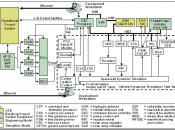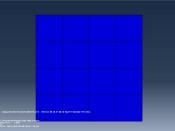"Religious language is meaningless" Discuss Sarah Sheasby
Religious language is language used to describe God, or the nature of religious belief. The fundamental debate surrounding religious language is the meaningfulness of saying statements such as "God loves me" or that "God exists". Whilst significant to the believer, such a statement is empty of meaning to the atheist. Forming one side of the debate are scholars such as Wittgenstein who stated "whereof one cannot speak thereof one must be silent, suggesting that we could not possibly speak of God, as we have never experienced God in a physical sense Others argue that we cannot use every day, commonplace language to talk of God; suggesting that religious language is inadequate, as we cannot limit God to human experience.
The origins of the religious language debate lay in 1920's Austria, where Moritz Schlick founded a philosophical group named the Vienna Circle. Named logical positivists, or logical empiricists, the Vienna circle stated that science if the only source of factual knowledge. They rejected metaphysical concepts such as being entirely, labelling them as meaningless. In order to analyse what language was meaningful, they developed the verification principle. The verification principle asserts that statements concerning religion are only meaningful if they can be proved true through use of empirical evidence, or is an analytic statement, which is true by definition. According to verificationism, statements such as "there is a tree outside the house" are meaningful because one can go to the window and verify that statement through sense observation. For verificationists, language tells us something about the world, and so statements which cannot be verified are meaningless because they do not tell us anything. Therefore a statement such as "the tree outside is beautiful" is a meaningless statement because an abstract concept such as...


